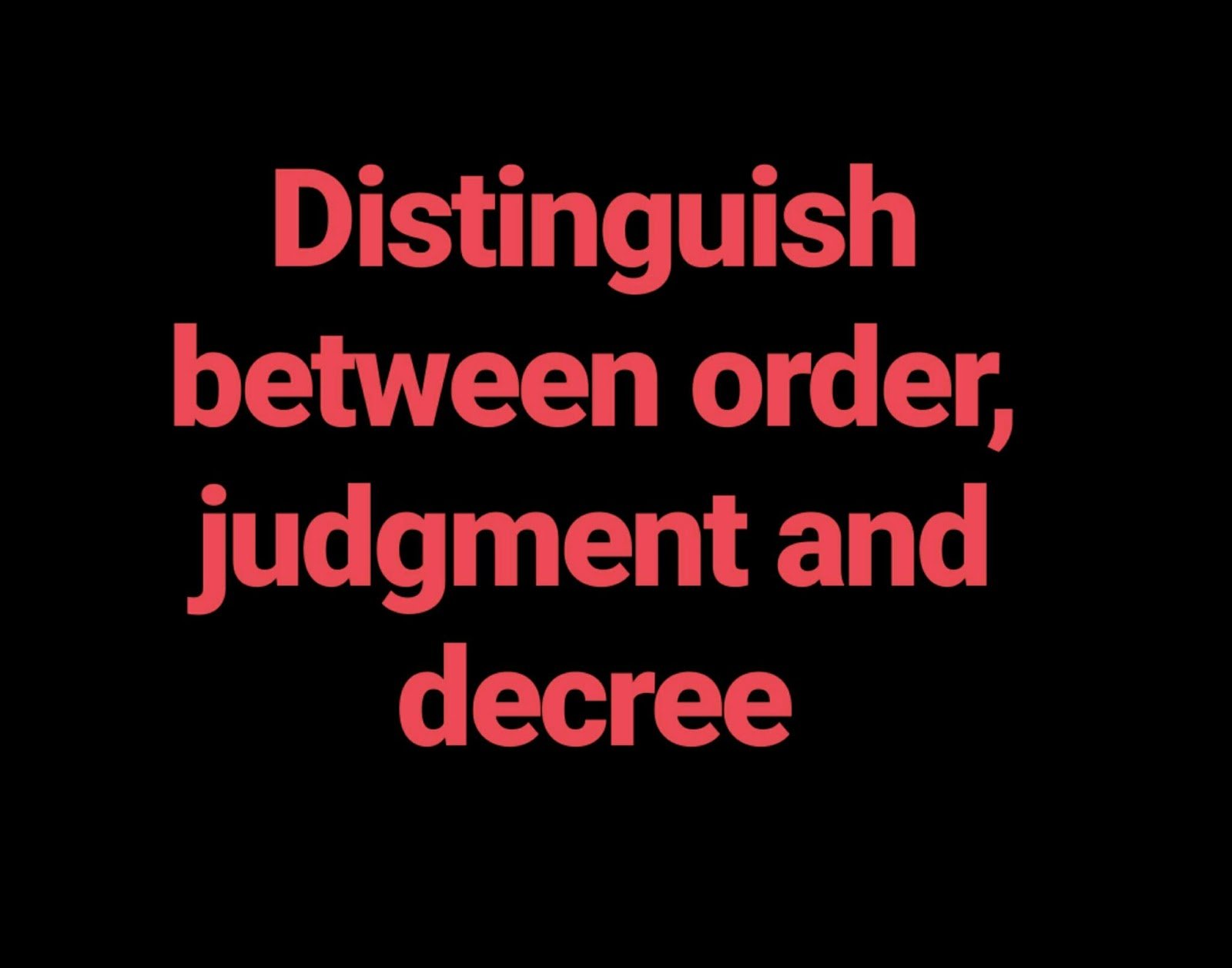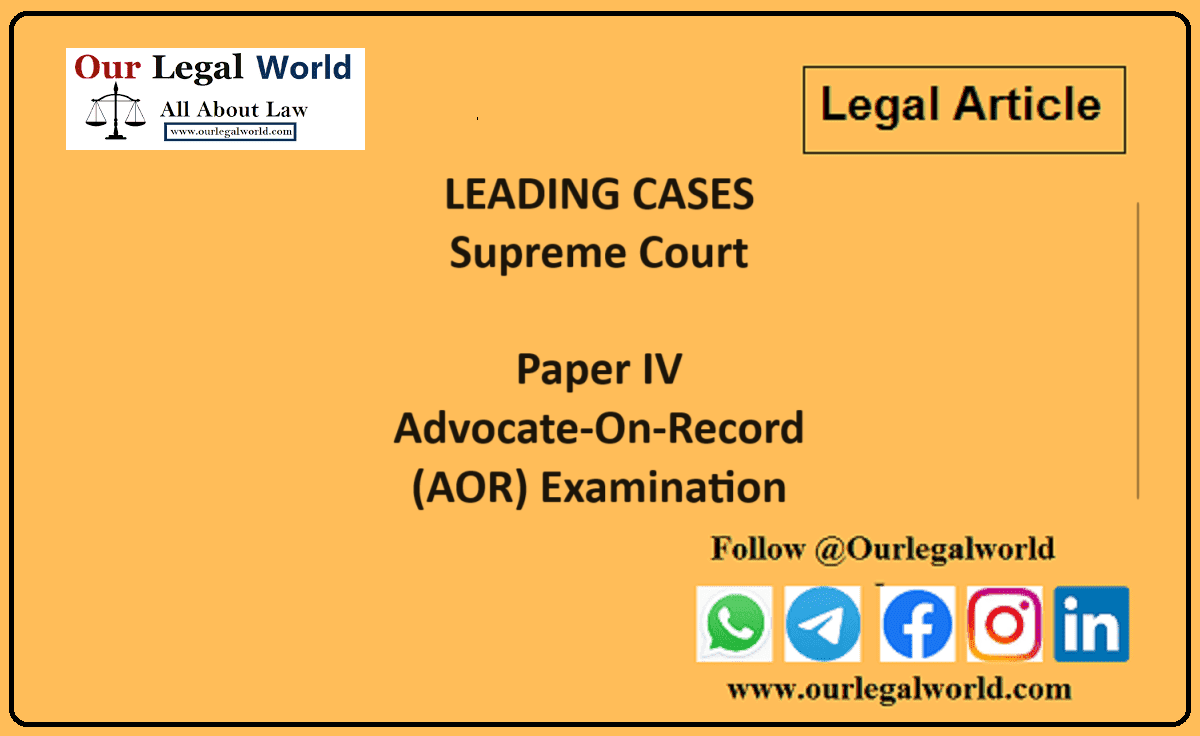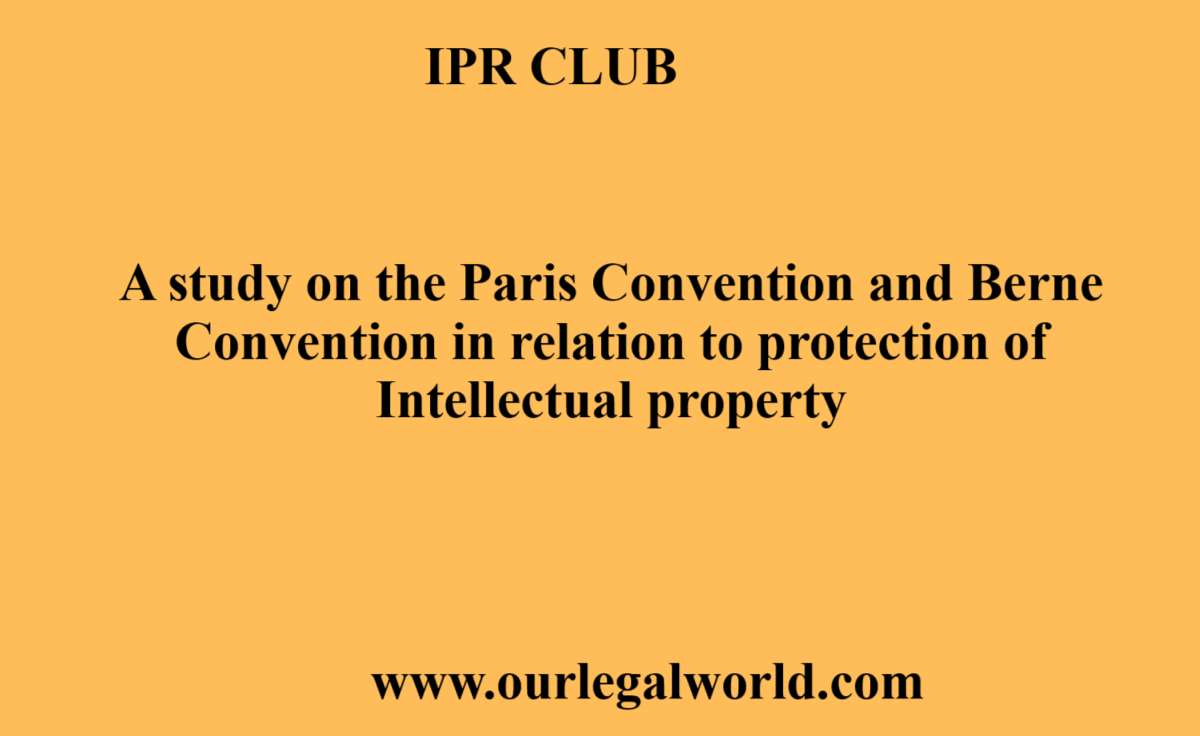Distinguish between order, Judgment and Decree
Difference between judgement and order
INTRODUCTION
The decision given by the Court of law, are either decrees or orders. A decree always follow the Judgment, which is pronounced by the Court, after hearing the case and can either be declaratory or executory. Both decree and order are analogous to each other.
RELEVANT PROVISIONS
Following are the relevant provisions of C.P.C regarding the topic of decree and order.
Order 20 Rule 1 to 6 for Decree and Judgment
DEFINITION OF DECREE: U/S 2(2) of C.P.C
A decree may be defined as under.
“Decree means the formal expression of an adjudication which, so far as Court expressing it, conclusively determines the rights of the parties, with regard to all or any of the matter in controversy in the suit, and may be either preliminary or final.”
ESSENTIALS OF DECREE
Following are the essentials of a decree.
(i) Adjudication
The word adjudication refers to the judicial determination of a matter in controversy and includes an ex-parte determination For an adjudication to come into the scope of a decree, it must be made by a court.
(ii) Given in Suit
The word suit is not defined by the code. So it may be defined in a general sense.
“Any proceedings, which is instituted by the presentation of a plaint, or which is created as a suit by any law, than such proceedings will be deemed to be a suit.”
(iii) Determination of Rights of Parties
The adjudication must determine the rights of the parties. Parties refers to persons, who are on the record as plaintiff and defendant, and right has reference to substantive right.
(iv) Regarding all or any of the Matter in Controversy
The adjudication determining the right of parties must be with regard to all, or any of the matter in controversy. Its reference to the subject matter of the suit in dispute, and the decision of the Court may be with regard to even one matter in controversy.
(v) Conclusive
The decision should be conclusive, so far as the Court expressing it is concerned, and it may be conclusive even if the suit is still not disposed of i-c preliminary decree.
(vi) Formally Expressed
There must be formal expression of the adjudication. It should be precise and specify the relief granted or other determination of the suit and names and description of the parties.
II. KINDS OF DECREE
Decree may be classified into two kinds,
(i). Declaratory decree which is not capable of execution.
(ii) Executory decree which can be executed and enforced by the court.
III. CLASSES OF DECREE
Following are the different classes of decrees as contemplated by Sec. 2(2) of C.P.C
(i) Preliminary Decree
A preliminary decree declares rights and obligations of the parties leaving further matters to be determined in subsequent proceedings and it i, conclusive in nature.
(ii) Final Decree
A final decree is one which completely disposes of the suit so far as the Court passing it is concerned.
(iii) Partly Preliminary and Partly Final Decree
A decree, may be of such a kind which is final it part and partly preliminary.
Example:
In a suit, for recovery of possession of immoveable property and rent, the part of the decree, which directs delivery of possession of property is final but the part directing an inquiry as to rent or profit is preliminary.
(iv) Order Rejecting a Plaint
Sec. 2(2) declares that order rejecting a plaint is a decree, though there is no adjudication of the rights of the parties but by fiction of law, it is classed as decree.
(v) Determination of Questions under Certain Provisions of C.P.C
By virtue of Sec 2(2), all orders made u/s 144 and under Rules 60, 98,99, 101 and 103 of order 21 are decrees.
IV. DECREE NOT INCLUDE THE FOLLOWING
By virtue of sec 2(2), the decree shall not include the following:
(i) Appellate Orders
An Adjudication, from which an appeal lies, as an appeal from an order, is not a decree.
Example:
Questions to be determined by the executing courts, u/s 47, order.
(ii) Dismissal in Default
Orders of dismissal of suit, in default of appearance or non-prosecution, are not decrees i.e. orders passed under order 9 or 17 of C.P.C.
4. DEFINITION OF ORDER: u/s 2 (14) of C.P.C
“Order means the formal expression of any decision of a Civil Courts which is not a decree.”




![Jamia Hamdard Mediation Competition 2025 at School of Law, HILSR [21st February 2025]](https://www.ourlegalworld.com/wp-content/uploads/2024/12/Screenshot-11-min-1.png)



